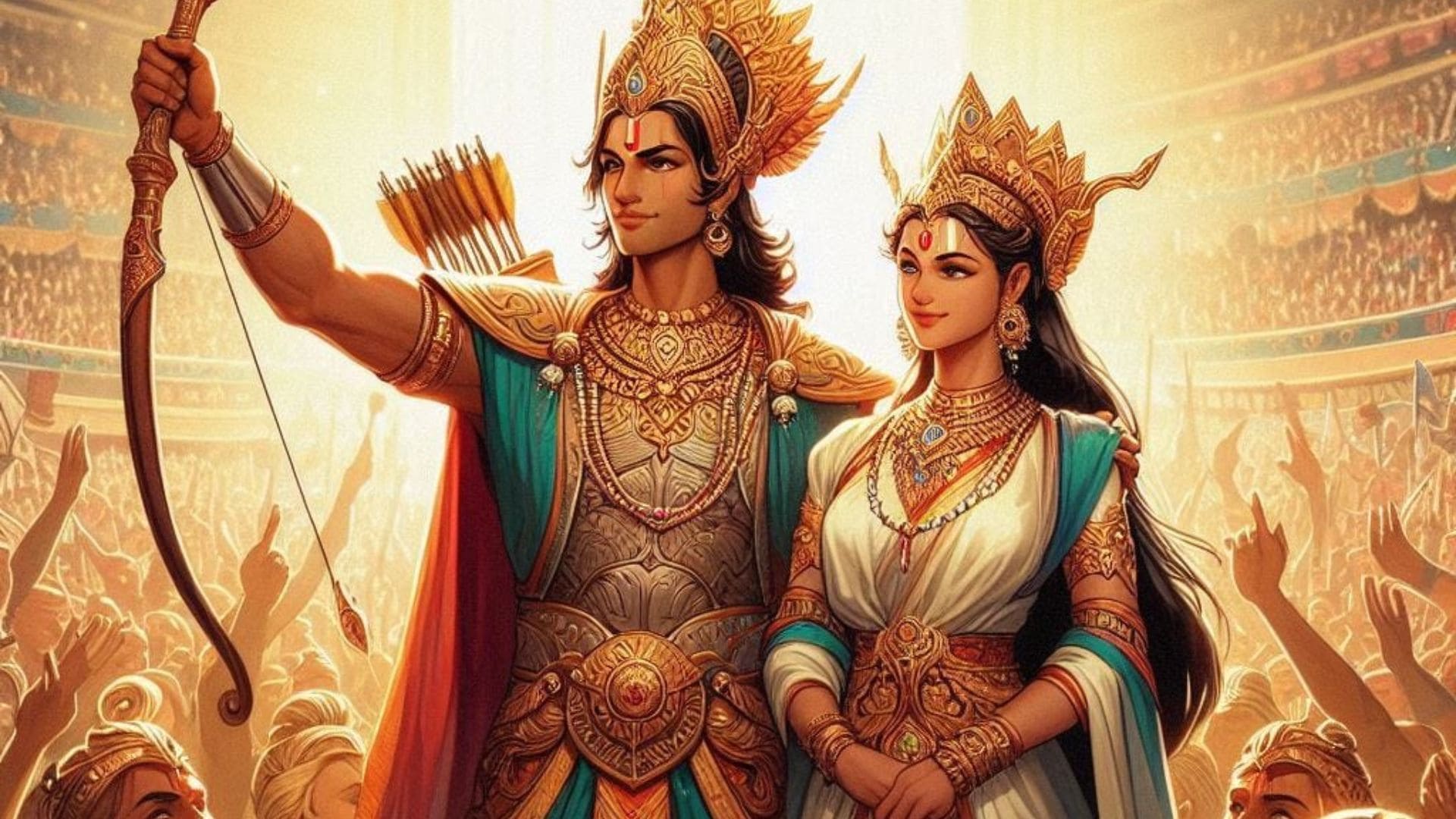
Draupadi's Swayamvara Karna's Rejection and the Debate on Interpolation
King Draupad organised a swayamvar for his daughter Draupadi.
Dhristdyumna addresses all the suitors present. There would be five arrows, one bow and an eye in a machine. The skilled warrior who hits the target would get his sister's hand in marriage.
Mighty kings and princes fail to make it.
No one suspects that an impoverished Brahmin would string the bow leave alone strike the centre of the eye.
Arjun was disguised as a Brahmin. When he decides to participate, the rest present wonder and exclaim,
“ If skilled warriors like Karna and Shalya could not string the bow, wonder how a Brahmin with no knowledge of arms would! ““
There is an interpolation in some versions of Mahabharata that Draupadi refused to marry a suta.
Similar Stories
Explore the extraordinary birth of Dhrishtadyumna from the sacrificial fire, as narrated in the *Mahabharata*. This symbolic tale highlights themes of divine retribution, the power of yajna (sacrificial rituals), and the inevitability of destiny. Witness how King Drupada's desire for vengeance against Guru Drona culminates in the miraculous emergence of a warrior preordained to restore dharma.
Explore the true character of Draupadi as portrayed in the unabridged Mahabharata. Addressing common myths and misconceptions, this article highlights her virtues, resilience, and the unjust blame she often receives for events like the Kurukshetra War. Based on authentic sources like the BORI Critical Edition and Geetapress editions.
Dive into an in-depth analysis of Karna and Bhishma, two of the greatest warriors in the Mahabharata. Explore their martial prowess, command strategies, and legendary feats on the battlefield. Who truly holds the edge in combat, leadership, and legacy? A detailed comparison between the tragic hero Karna and the revered grandsire Bhishma.
Astrology, Mantras, Events, Stories & More.
